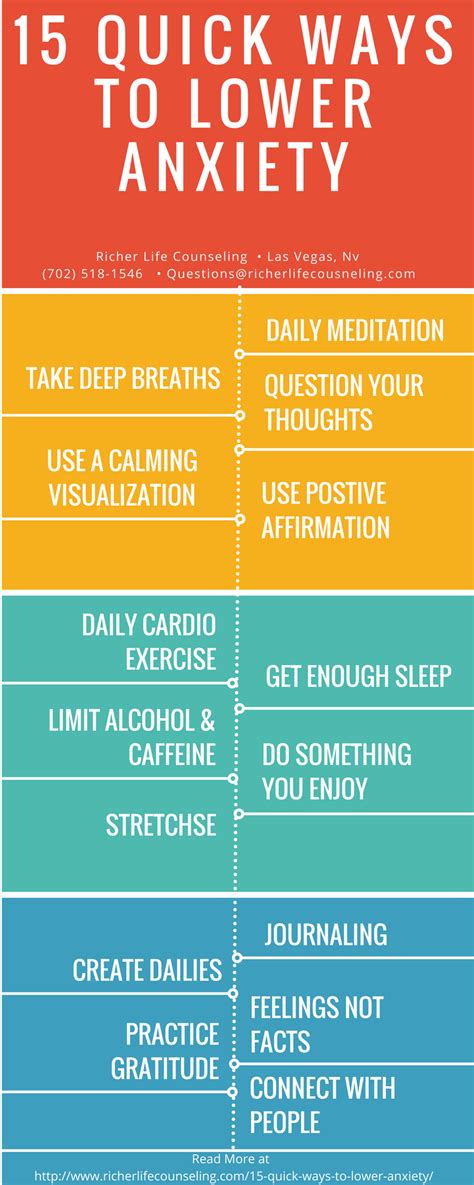How to Decrease Anxiety: Practical Strategies for a Calmer You
Anxiety. That persistent feeling of unease, worry, or nervousness that can creep into our lives and disrupt our peace. Millions grapple with it daily, but thankfully, there are many effective strategies to decrease anxiety and regain control. This guide will explore practical techniques backed by research to help you manage and alleviate your anxiety.
Understanding Your Anxiety
Before diving into solutions, it's crucial to understand the root of your anxiety. Is it situational (tied to a specific event), generalized (constant low-level worry), or related to a specific anxiety disorder? Identifying the source helps tailor your approach. Keeping a journal can be incredibly helpful in tracking triggers and patterns.
Recognizing Anxiety Symptoms
Anxiety manifests differently in each person. Common symptoms include:
- Physical: Rapid heartbeat, shortness of breath, sweating, trembling, muscle tension, fatigue, headaches, stomach problems.
- Emotional: Irritability, restlessness, feeling overwhelmed, difficulty concentrating, fear, worry.
- Behavioral: Avoiding situations that trigger anxiety, excessive checking, pacing, sleep disturbances.
If you're experiencing severe or persistent anxiety, seeking professional help is crucial. A therapist or doctor can provide a proper diagnosis and recommend tailored treatment plans.
Practical Strategies to Decrease Anxiety
Now, let's explore practical strategies you can implement to manage your anxiety:
1. Mindfulness and Meditation
Mindfulness involves focusing on the present moment without judgment. Meditation, a core component of mindfulness, can significantly reduce anxiety levels. Even 5-10 minutes daily can make a difference. There are numerous guided meditation apps available to help you get started.
2. Deep Breathing Exercises
Deep, slow breathing activates the parasympathetic nervous system, counteracting the "fight or flight" response associated with anxiety. Try box breathing (inhale for 4 seconds, hold for 4, exhale for 4, hold for 4) or other controlled breathing techniques.
3. Regular Exercise
Physical activity releases endorphins, natural mood boosters that combat anxiety. Aim for at least 30 minutes of moderate-intensity exercise most days of the week. Find activities you enjoy – walking, running, swimming, dancing – anything that gets you moving.
4. Healthy Diet and Sleep
Nutrition plays a significant role in mental health. A balanced diet rich in fruits, vegetables, and whole grains can improve mood and reduce anxiety. Prioritize 7-9 hours of quality sleep each night to allow your body and mind to rest and repair.
5. Cognitive Behavioral Therapy (CBT) Techniques
CBT helps identify and challenge negative thought patterns contributing to anxiety. Techniques like cognitive restructuring and exposure therapy can be highly effective in managing anxiety symptoms. Many resources are available online to learn basic CBT techniques.
6. Connect with Others
Social support is vital. Spend time with loved ones, join a support group, or seek out a therapist. Talking about your feelings can be incredibly cathartic and helpful.
7. Limit Caffeine and Alcohol
Caffeine and alcohol can exacerbate anxiety symptoms. Try to reduce your intake or eliminate them altogether.
8. Engage in Relaxing Activities
Make time for activities you enjoy and find relaxing. This could be reading, listening to music, spending time in nature, pursuing hobbies, or anything that helps you unwind.
When to Seek Professional Help
While these strategies can be helpful, it's essential to recognize when professional help is necessary. If your anxiety is significantly impacting your daily life, interfering with your relationships, or causing significant distress, please seek professional help from a therapist or doctor. They can provide a proper diagnosis and develop a personalized treatment plan that may include therapy, medication, or a combination of both.
Remember, managing anxiety is a journey, not a destination. Be patient with yourself, celebrate your progress, and don't hesitate to seek support when you need it. You deserve to live a calmer, more fulfilling life.
